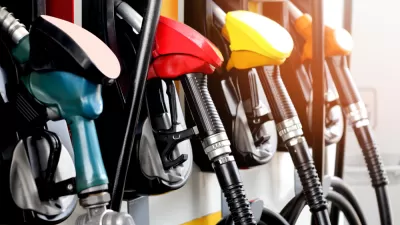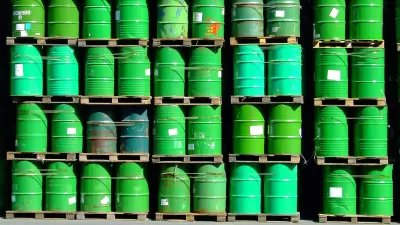Plunging oil prices are hitting three oil-producing countries the hardest: Venezuela, Iran, and Russia. This article looks at each of them and evaluates how they will fare if oil prices do not rise, including their relationships to the U.S.
More than any other nations, these countries used their oils wealth to gain regional influence and "to challenge United States hegemony."
"Now, the (oil) producers are experiencing a reverse oil shock," states oil expert Daniel Yergin. "As revenue went up, government spending went up and expectations of a continuing windfall led to greater and greater ambitions.
But such ambitions are harder to finance when oil is at $74.25 a barrel, its closing price Monday (10/20) in New York, than when it is at $147, its price as recently as three months ago."
Of the three,"Russia was better positioned to weather lower prices than were many other oil and gas producers. The country deposited a significant portion of its oil revenues into two stabilization funds, which totaled $190 billion at the beginning of this month. The Russian budget is pegged to an oil price of roughly $70 a barrel - most revenues exceeding that have gone to these so-called rainy-day funds."
From USA Today: "Falling oil prices pinch OPEC":
The recent plunge in oil prices threatens to trigger unexpected financial headaches for top producing nations, especially Iran and Venezuela.
USA Today: "Gasoline prices tumble despite likely OPEC cuts"
OPEC announced Oct. 19 "that members plan to announce a 'substantial' output cut at an extraordinary meeting that begins Friday (10/24) in Vienna."
FULL STORY: 3 Oil-Rich Countries Face a Reckoning

Maui's Vacation Rental Debate Turns Ugly
Verbal attacks, misinformation campaigns and fistfights plague a high-stakes debate to convert thousands of vacation rentals into long-term housing.

Planetizen Federal Action Tracker
A weekly monitor of how Trump’s orders and actions are impacting planners and planning in America.

In Urban Planning, AI Prompting Could be the New Design Thinking
Creativity has long been key to great urban design. What if we see AI as our new creative partner?

King County Supportive Housing Program Offers Hope for Unhoused Residents
The county is taking a ‘Housing First’ approach that prioritizes getting people into housing, then offering wraparound supportive services.

Researchers Use AI to Get Clearer Picture of US Housing
Analysts are using artificial intelligence to supercharge their research by allowing them to comb through data faster. Though these AI tools can be error prone, they save time and housing researchers are optimistic about the future.

Making Shared Micromobility More Inclusive
Cities and shared mobility system operators can do more to include people with disabilities in planning and operations, per a new report.
Urban Design for Planners 1: Software Tools
This six-course series explores essential urban design concepts using open source software and equips planners with the tools they need to participate fully in the urban design process.
Planning for Universal Design
Learn the tools for implementing Universal Design in planning regulations.
planning NEXT
Appalachian Highlands Housing Partners
Mpact (founded as Rail~Volution)
City of Camden Redevelopment Agency
City of Astoria
City of Portland
City of Laramie





























